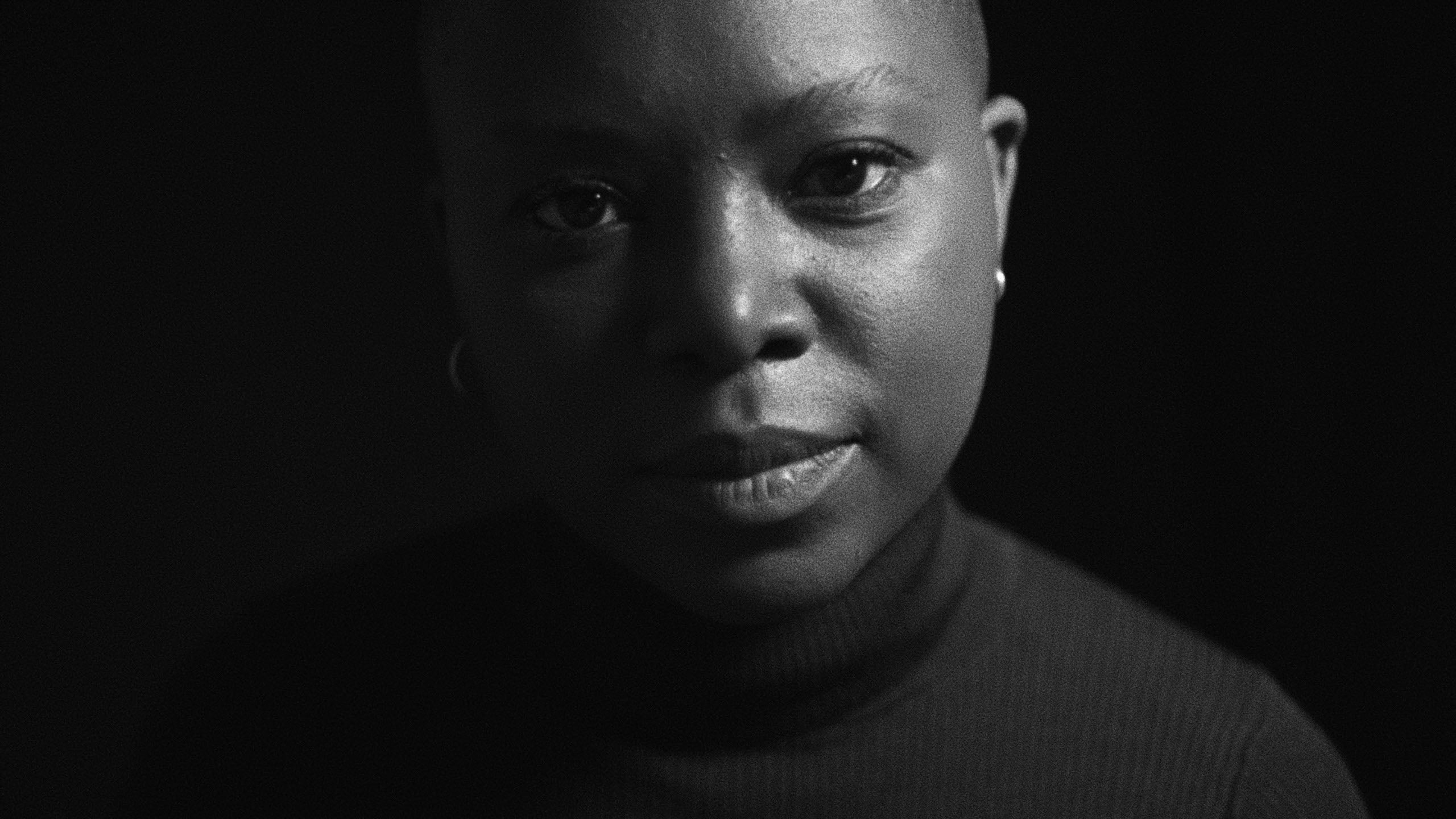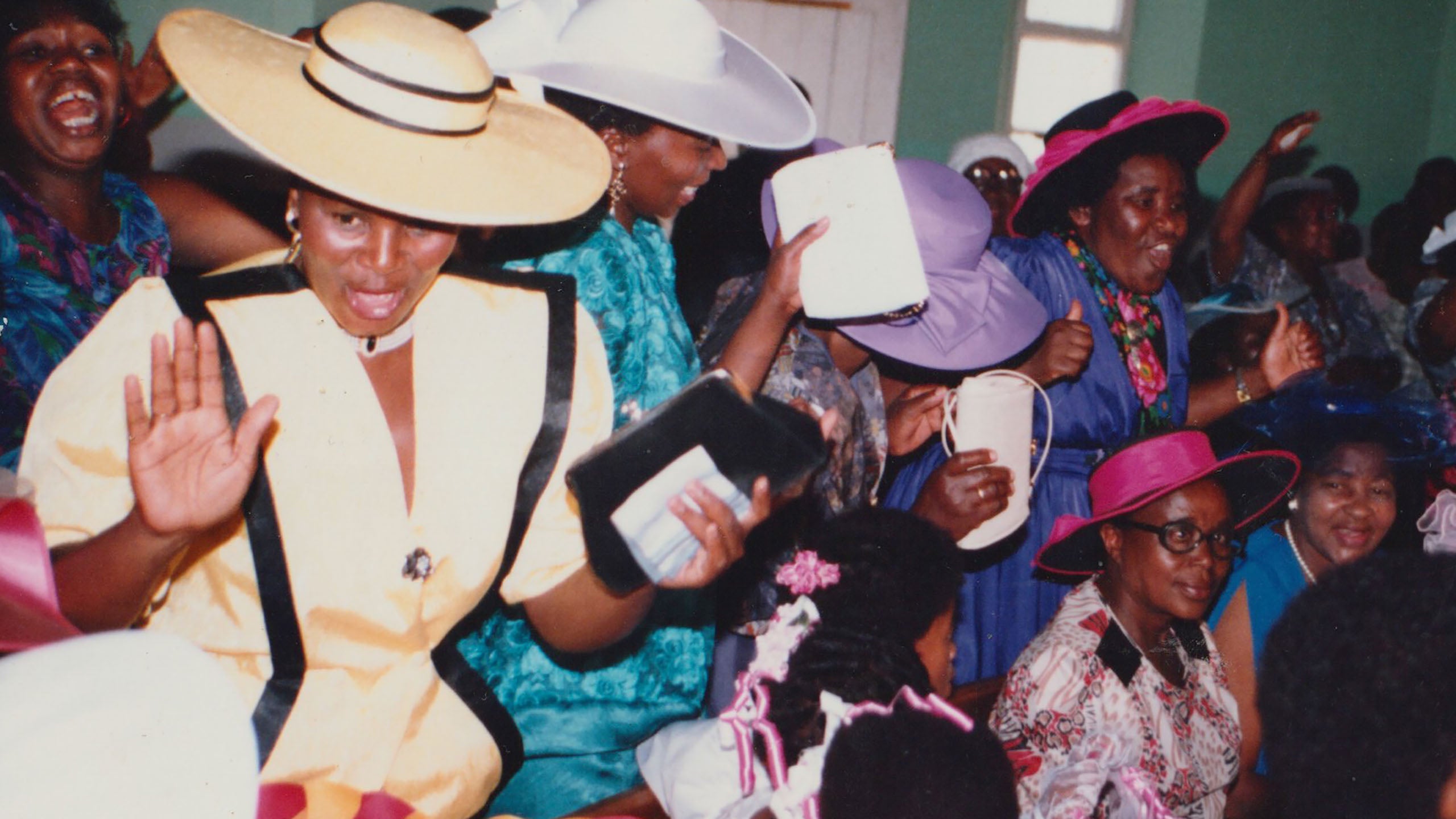
The documentary Milisuthando begins with 2014 footage of the body of a naked woman by the statue of Nelson Mandela at Nelson Mandela square in Johannesburg, South Africa. She looks up at the statue of the anti-apartheid activist and first legitimate president of the country who had died the year before and hugs it. Authorities appear to be called on the woman who subsequently puts on her clothes, and the viewer is left confused. No one knows who she is and why she did it, including the film’s director, Milisuthando Bongela.
“That was one of the main events that kind of made me realize we’re the grown-ups, we are not the kids anymore in the country,” says Bongela. “We tried our hardest to find her but she’s totally anonymous…I was never the same after that day. I can’t tell you exactly why.”

Bongela named the film Milisuthando not just because it’s a documentation of the filmmaker’s personal history of her native South Africa — which also accompanies an obscure framing of the country’s communal and national history — but really because the name means “bearer of love,” which she believes is her purpose not only in this film, but in life.
Speaking to ESSENCE at the Sundance Film Festival two days after its premiere, Bongela discusses an important throughline of the film — the history of people like her who were born in the Transkei, a Bantustan or “homeland” for the Xhosa people during South Africa’s apartheid regime. Officially the Republic of Transkei, it was founded in 1976 and dissolved in 1994 with the emergence of Mandela’s new democratic government. (Bantustans were designated territory set aside for Black natives of the country, hardly recognized as sovereign by any state in the world except for the apartheid South African government and a few others.)
Bantustan histories in South Africa are often overlooked and the people who grew up within their context are misunderstood, even considered sell-outs by fellow (Black) citizens. But for Bongela, whose parents and grandparents lived in the Transkei, it was a far more complicated experience than many people can imagine. Having been a young girl during dissolution, even the end of it held no meaning for her specifically.
“I was just a child, it was just a home. There was no political significance in my consciousness as a child,” she says.

This is very different from her parents and grandparents’ generation who experienced the Transkei, and who, in the film, appear to have a nostalgia for it. Illegitimate as it was in the eyes of the world, and difficult as it had been because of its economic limitations, the Tanskei offered its inhabitants a certain kind of freedom Black people couldn’t experience under the apartheid government — a place that felt like totally theirs, by and for people who looked like them.
Bongela’s grandmother, whom she describes as a “living memory” of the place, and whom she follows closely in the film — documenting her examinations on the South Africa of yesteryear and of today — is much more straightforward about juxtaposing the Transkei government against Mandela’s government and thereafter.
“She also lived through the propaganda [of the Transkei] and was a victim of it. And every time you saw my grandmother, she would talk about the Transkei and how she lost her pensions in the new government,” Bongela says. “And so, her whole entry into the new South Africa is like yes, Mandela is really great…but it speaks to this thing of what was lost, this other life that was lost.”
With personal and historical footage as well as past interviews of school children’s integration experience into the new government in the early ’90s contrasted against interviews of some of their adult selves in present-day, Milisuthando unfolds accounts of the hopes and anxieties of South Africans during Mandela’s arrival. The film tacitly compares the experience with an apartheid South Africa and a post-apartheid South Africa, scrutinizing the narratives of its national and global positioning as “Rainbow Nation,” a term coined by the late Desmond Tutu, to describe the post-apartheid multiracial South African state.
In the film as in the interview with ESSENCE, Bongela demands re-examination of how we think of South African heroes, not so much questioning their place, but asking questions about what she and other young South Africans might take from them, and perhaps more importantly, what they might need to leave out.
“The absolute utter joy of touching each other and like the end of apartheid, I don’t want to ever contaminate that experience or minimize it, because it was real. Everybody remembers. But then, of course, the reality is where has the country gone?” she says. “Personally, I feel like we put too much on one man, too much expectation. It’s almost like this weird, fascist, sadistic desire for a father figure…hero worship.”
What separates Bongela’s film from many others like it is that the burden of these questions of race, citizenship, history, and the state are not only for Black South Africans to ask and answer but she demands the same of non-Black citizens, and especially white South Africans; she demands that they interrogate what their histories mean, and how those histories are present in their interactions with Black South Africans. It’s not just a general demand either, Bongela interviews even close white friends about their sense-making of their personal intergenerational histories, their ancestors as conquerors. It is, without a doubt, among the most striking revelations in the film.
“It’s such a privilege to be able to tap into these histories right now, and to also then be dealing in real time with peers, white peers, you know, who’ve inherited these histories from the other side, grappling with what their ancestors have left them,” she says. “I was really interested in the shape of and the anatomy of white pain. And validating that because white pain is the thing that keeps replicating and keeps mutating racism. And as long as white people aren’t allowed to acknowledge their pain, the grief about the loss of their power comes out in fucked up ways.”
In this way, Milisuthando offers not just a personal and public historical retelling and renewed telling of South Africa, the film might also be a guide for the way the nation, and maybe many others like it need to address the pains of those historically subjugated — by truly asking those who are heirs of the subjugators to reckon not just with the pain of the others, but really, with their own losses. As for Bongela, bearer of love that she is, she believes her ancestors have given her a different kind of assignment, manifested in the experience of making the film and beyond.
“I like to chew on what my ancestors have left me,” she says. “I’m so relieved that they left me with a reference point for love and prayer and wisdom…and an essential way to enter the world and just be.”